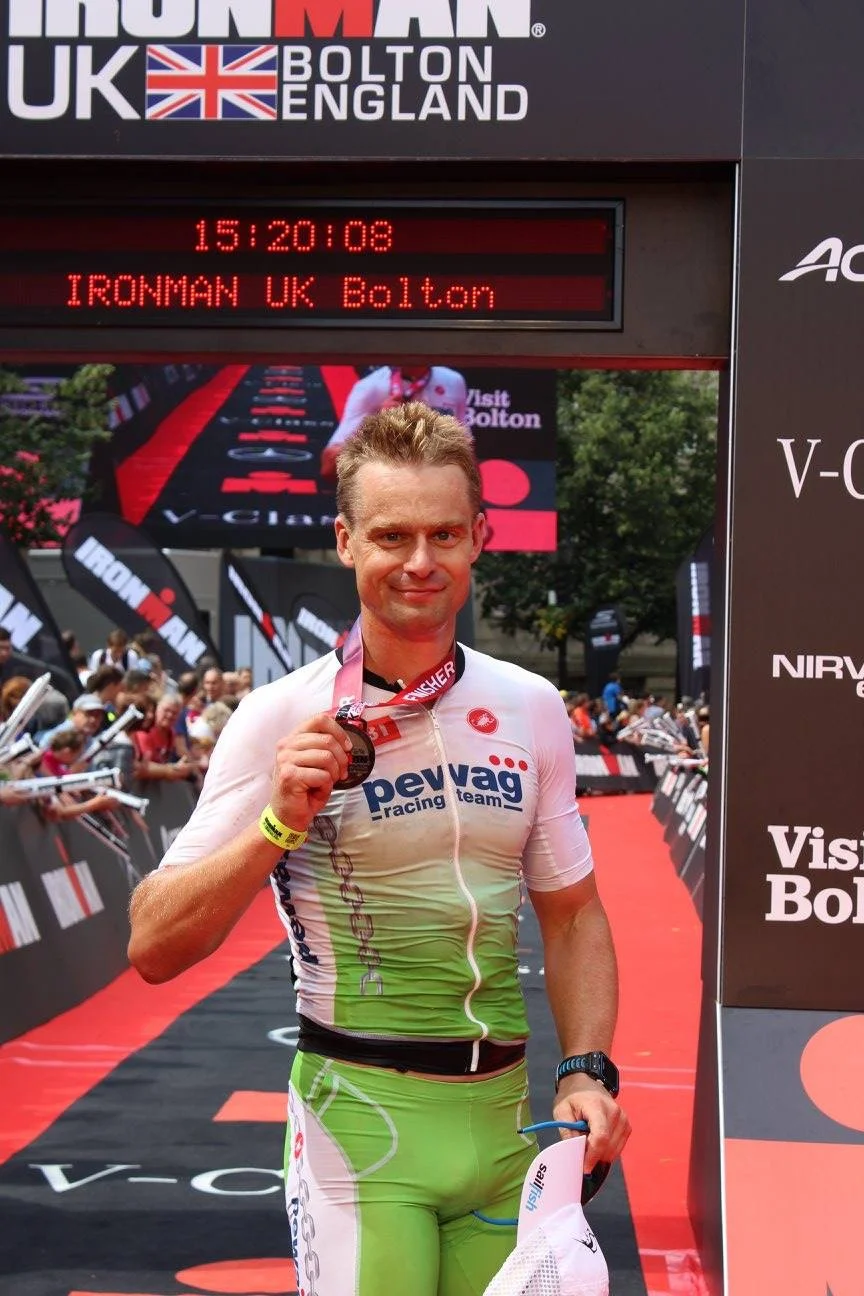This month, our pro triathlete, Fraser Cartmell, writes about the basic kit that you need to get started in triathlon and his favourite bits of kit for each discipline.
Looking in from the 'outside', triathlon by its very nature can be viewed as a complicated sport, given the combination of three separate sports (or disciplines) within a sport! Indeed, when I began racing triathlon as a young junior in the north east of Scotland, nearly twenty years ago it appeared a daunting task to begin with, but as with most things in life, baby steps (and plenty of borrowed items) got me started on the journey. It's safe to say I've been hooked ever since.
The sport is littered with different bits and pieces of equipment that you can appear to *need* in order to toe the start line - triathlon is undoubtedly a marketing dream! However, stripped back to the bare essentials it can hopefully resemble a far more attainable event for the everyday person who might want to give it a go, just to see how they find it. The *need* for the shiny and sparkling equipment can come later!
Swim
To begin your triathlon journey the pool triathlon is a great starting point. As long as you have a trusty swimming costume and goggles, you're all set. Fancy, once piece triathlon suits, and expensive wetsuits for open swimming can come later if you decide you're keen. One thing I will advise against is using a regular surf wetsuit with the belief that "it'll work fine"... I used a friends' windsurf version for my very first open water event and it was a miracle I ever made it ashore! But you learn quickly, and these days my tri specific wetsuit, complete with far thinner and more flexible neoprene is certainly one of my key pieces of race equipment.
Bike
As a youngster who explored the countryside after school on his trusty mountain bike, I was familiar with riding off road, rather than on a road bike. And so, conveniently my first taste of racing a triathlon was an off road event, which I loved. Once the inevitable triathlon seed had been sown, we (my parents) were able to borrow a road bike from (another!) friend for the remainder of that summer until Christmas came around for my very own set of speedier wheels. My point here is that the *need* for expensive, aero tri-specific bicycles isn't necessarily justified until you've really sunk your teeth into a number of local level events, to test your appetite. Perhaps inevitably however, my time trial bike resplendent with electronic gears and carbon wheels has become a firm favourite piece of kit that I spend extra care looking after.
Run
I always believe that shoes and footwear are as exciting to me as they are everyone else, but I'm not so sure? Personally, I love the smell of a new pair of trainers when they appear from the shoebox, and so over the years of racing professionally I have become spoilt with the deliveries of new shoes that sponsors have kindly sent. Whether it be for training or racing, I'm a total sucker for a fresh set of trainers and I think after my bike these rank as 'next best favourite' items on my list, and I'll do my best to keep them in good condition. I might even have been known to machine wash shoes (which you are not supposed to... it's bad for both the washing machine AND the shoes apparently!) to keep them clean. It works a treat!
Accessories
As technology has rapidly progressed there are now all sorts of other 'extra' things that we *need* to train and race for triathlon, including (but not limited to) GPS running watches and cycling computers, electrolyte energy drinks and carbohydrate specific bars, racing helmets with visors and bike shoes with ratchets and straps. There are even special pedals that measure your power output (that the aforementioned cycle computer will tell you about) and many more I have limited time to write about!
Too many items to choose your favourite from I'd say ;)
Words by Fraser Cartmell.












